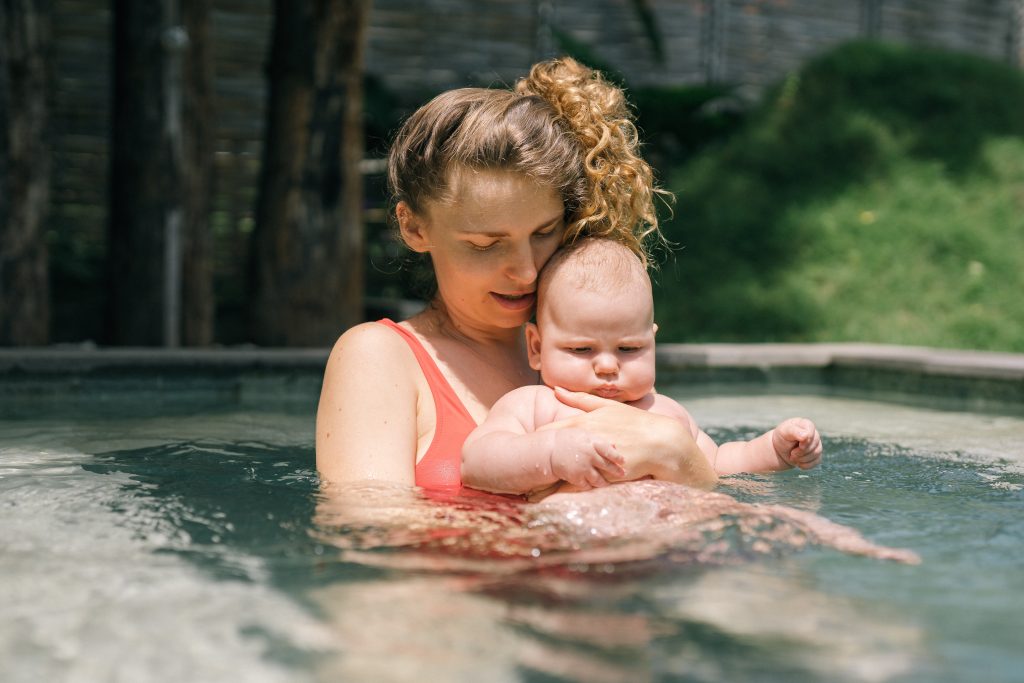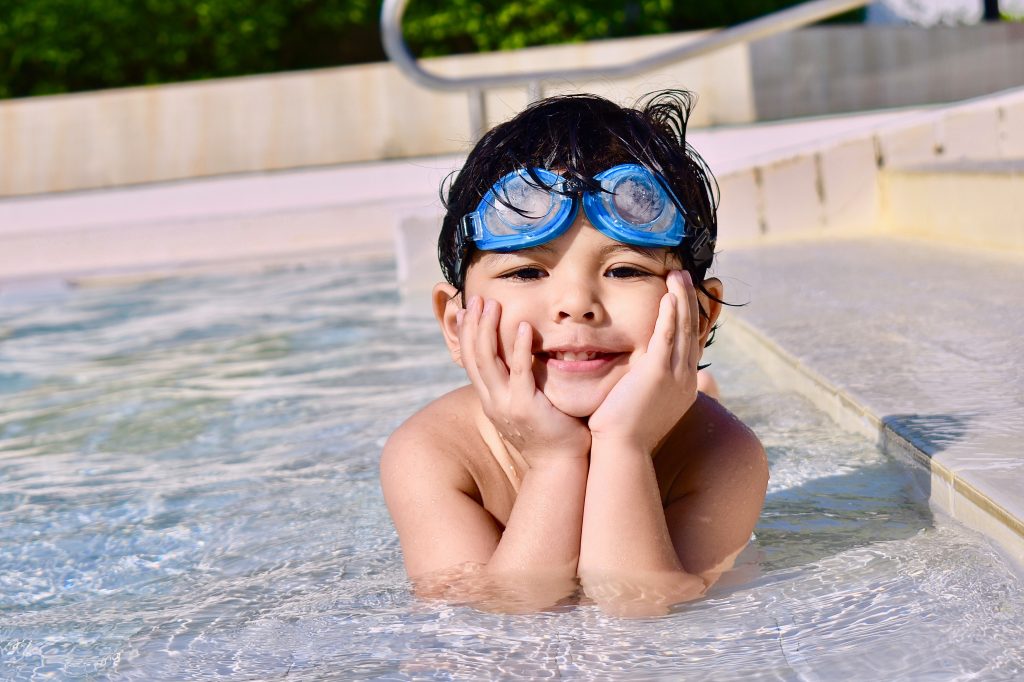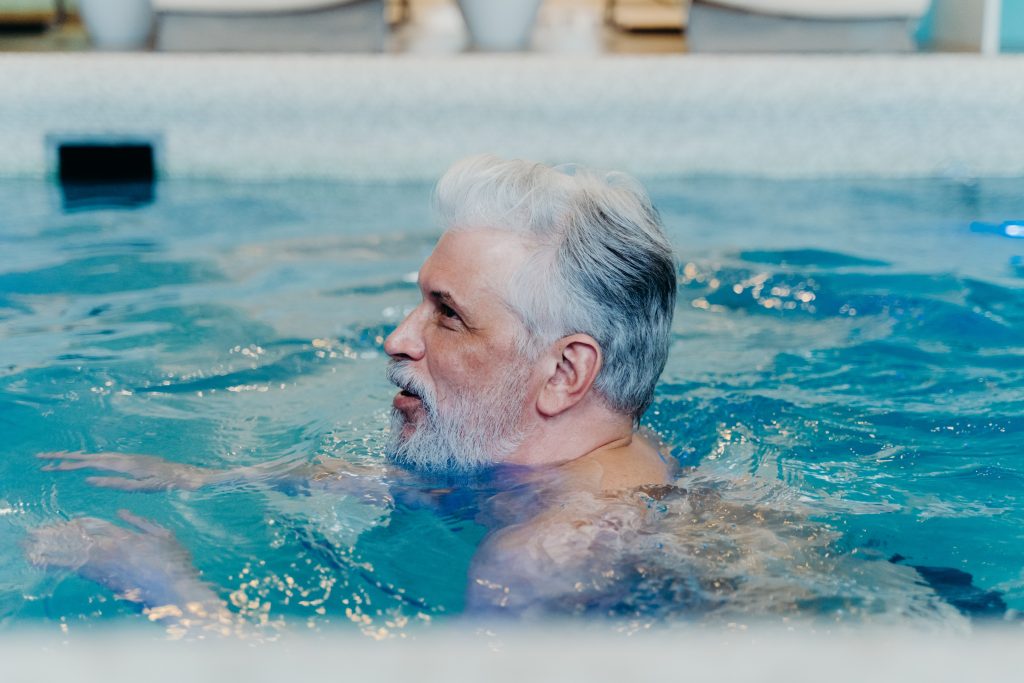No doubt, it’s a rite of passage to be put through swim lessons as a child growing up in a beach city. When there’s so much of our culture centered around the water, it’s a no-brainer. However, swim lessons go beyond just encouraging water safety. There are long-term benefits when it comes to cognitive function, socialization, and general mobility – and the younger it’s introduced, the better.
It might be easy to only go to lessons as necessary, but you (or your child) could be missing out on incredible benefits that come with staying in the water long-term. So in case you need a reason (or just some motivation), here’s the reality:

For Infants
Cognitive Development – This is the biggest one. Swimming utilizes parts of the brain that control balance and mobility (yes, you need to have good balance in order to swim). Specifically, the bilateral cross-patterning movements using both arms and legs, helps your baby’s brain grow according to a pilot trial from the University of Rome. The stimulation of this part of the brain can aid in reading, language development, academics, and spatial awareness. A four-year long study at the Griffith University of Australia backs this.
Reducing the risk of drowning – Now this may seem obvious, but for this age group, it’s significant; the AAP says that the leading cause of death in infants (aged 1-4) is drowning. Better to get them doing back floats as soon as they’re able. The younger, the better; don’t wait until they start walking, where they can waddle into pools and bodies of water.
Easier caregiving – A baby is using a lot of new muscles in their bodies to do an activity like this, which means a bigger appetite and better sleeping habits. Not to mention, it’s a fun activity for parents to do with their little ones that is incredibly productive.

For Children and Adolescents
Socialization – Swimming can be a fabulous team environment due to its one-for-all structure; as a swim coach, I can say with certainty that at such a young age, swimmers are very keen on acknowledging everyone’s unique skills and encouraging them healthily. It builds great camaraderie, which can spill over into other social aspects of their life.
Etiquette – There’s some surprising lessons that come with swimming on a team dynamic; some being waiting your turn (lane swimming) and being on time (interval training).
Concentration – There is not a single muscle in the body that doesn’t get used when one is swimming, from your head to your fingers to your toes. Being able to receive constructive criticism (another benefit), adjusting such specific aspects of your stroke, and then executing that feedback takes a ton of concentration. In addition, interval training can include some quick and nuanced addition, so it comes with a mental math lesson as well.

For Adults
Low impact – Arguably the biggest appeal to swimming is the fact that it is incredibly low impact and healthy for your joints. Not to mention, it improves your flexibility effectively due to the use of slow twitch muscle fibers. Great for arthritis!
Whole body workout – Like I mentioned before, it uses every muscle in your body, down to your lungs for breath control. This makes it ideal for those with asthma or other respiratory problems.
You set the pace – As one gets older, it’s understandable that there are varying degrees of fitness and athleticism. With swimming, you can make it incredibly relaxing for the sake of reducing anxiety, or incredibly challenging with the purpose of strengthening your heart. It’s up to you.
Believe it or not, there are many more I didn’t include. In sum, there are very few reasons not to swim. The benefits outnumber the disadvantages, if any.
At Premier Aquatics, there are numerous swim programs to get involved in for individuals of all ages. We offer swim lessons at multiple facilities, including at the Aliso Viejo Aquatic Center and Saddleback College, as well as either of our two Premier Swim Academy indoor facilities in Diamond Bar or Rancho Cucamonga. Private lessons for individualized attention are available for all ages along with group lessons for the younger ones who could benefit from the socialization.
We’re here to meet your health and safety goals, in and around the water. Reach out to get started at (949) 716 - 3333 or visit us at https://swimoc.com/ .
